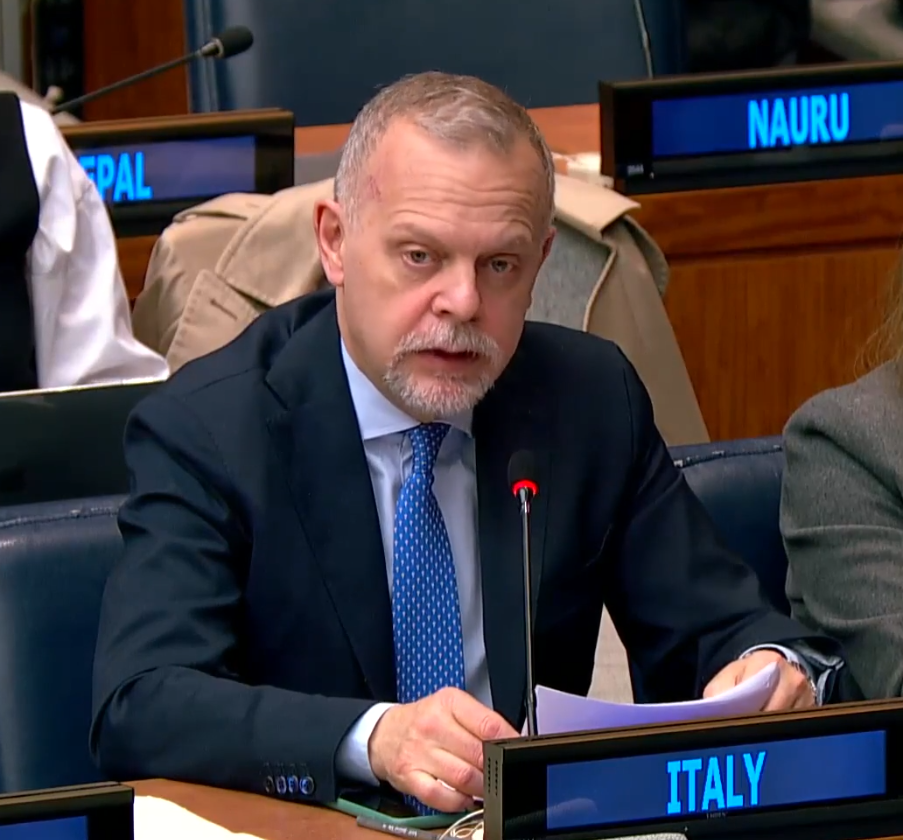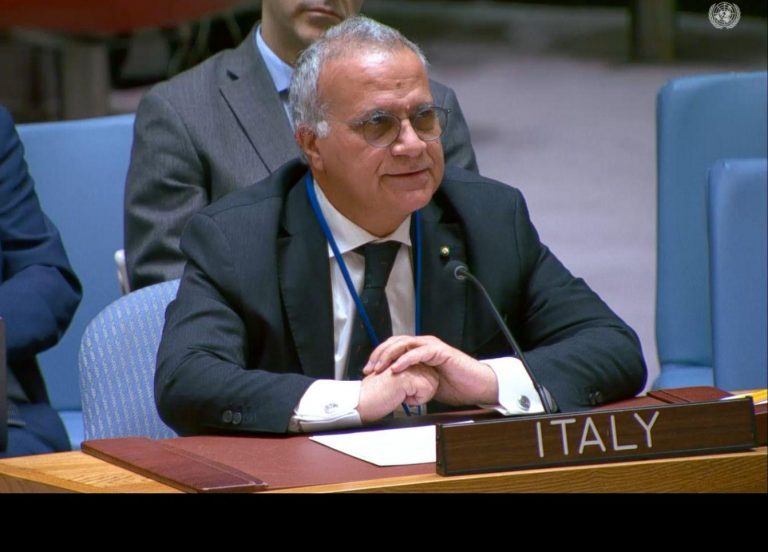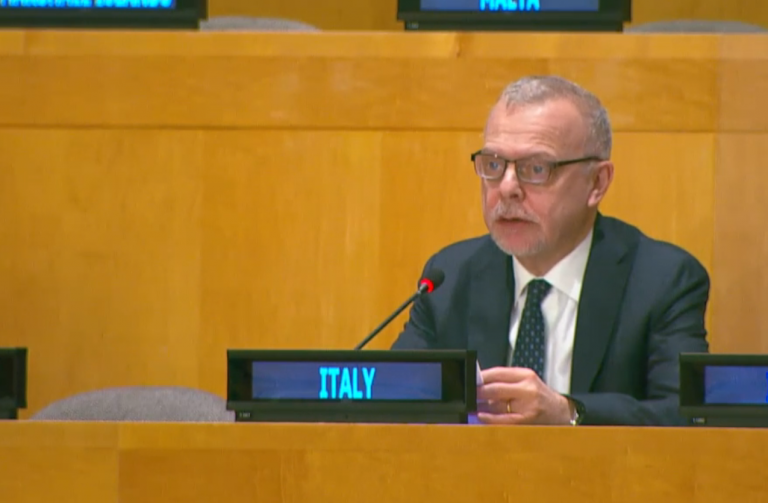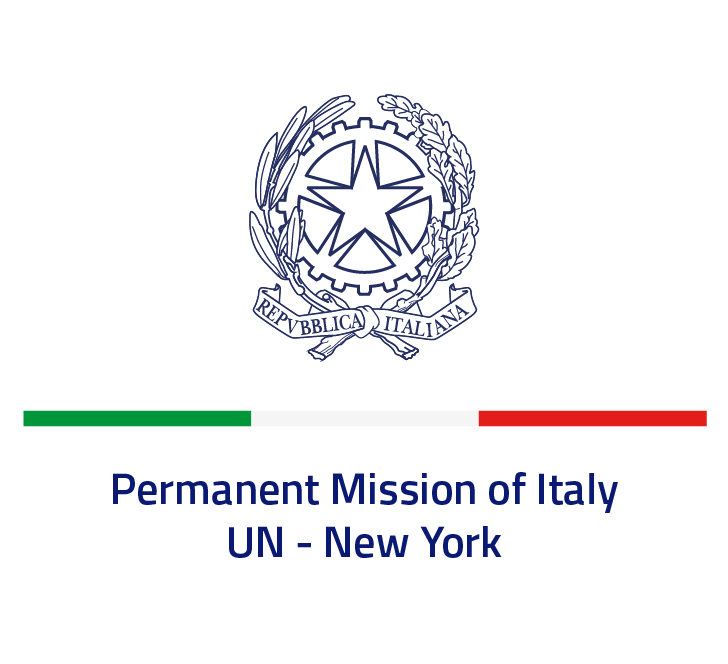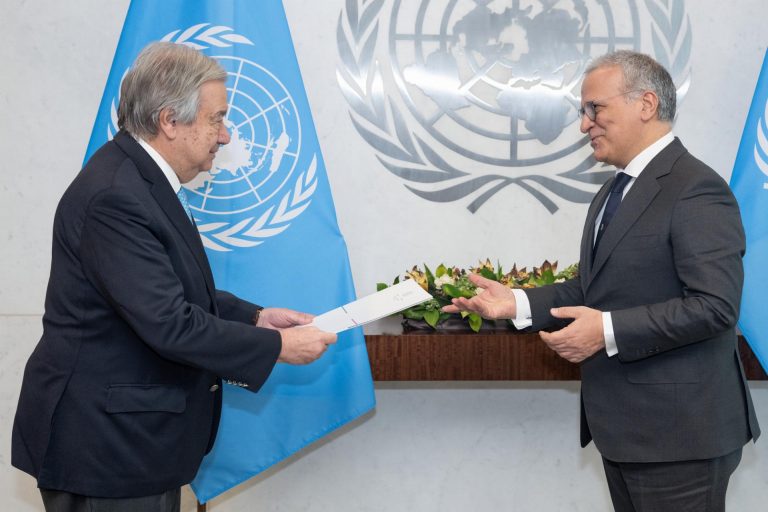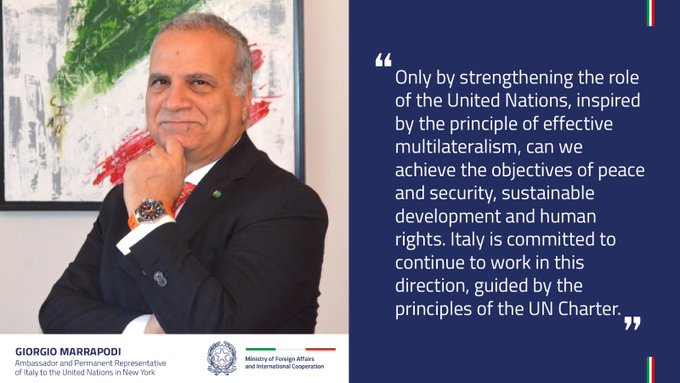Thank you, Madame Chair,
Italy aligns itself with the statement delivered by Poland on behalf of the European Union and wishes to add the following remarks in its national capacity.
Italy welcomes the priority discussions of the 63rd Session of the Commission for Social Development, and reaffirms its steadfast commitment to advancing inclusive and sustainable social policies at both the national and international levels.
In a world increasingly marked by inequalities and social vulnerabilities, Italy remains deeply engaged in fostering economic and social inclusion, with particular attention to marginalized and vulnerable communities.
Multilateral cooperation is essential to addressing global challenges in social development. Italy remains fully committed to supporting international efforts that advance social justice, gender equality, and youth empowerment.
We strongly believe that policies promoting equal access to education, decent work, and social protection systems are fundamental to building more just and resilient societies.
Our development cooperation initiatives focus on promoting inclusive growth, investing in human capital, and strengthening social protection mechanisms, particularly in regions facing conflict, climate-related vulnerabilities, and economic distress.
As we look ahead, the Pact for the Future offers a crucial framework to reinforce our collective commitments towards achieving the Sustainable Development Goals.
In this regard, we underscore the importance of constructive dialogue and collaborative action within the UN system to foster sustainable development and enhance social protection measures worldwide. Italy remains dedicated to working closely with all partners to advance this agenda.
Madame Chair,
Demographic trends present a growing challenge to labor markets and social systems worldwide.
Italy is among the most affected countries by population ageing—a testament to the quality of life in our country, yet also an indicator of persistently low birth rates.
As these demographic dynamics stem from trends set in motion decades ago, addressing them requires a long-term, multidimensional approach. While reversing these shifts is a complex challenge, we must prioritize strategies that maintain employment levels and ensure the sustainability of our social security systems.
Italy is committed to policies that strengthen labor market participation, particularly among underrepresented groups such as youth and women, and foster the inclusion of vulnerable individuals.
We must underline the importance of investing in upskilling and reskilling initiatives, including those aimed at keeping older workers in employment. In the face of rapid changes driven by the green and digital transitions, we must prevent skill obsolescence and promote an inclusive and adaptive workforce.
The Italian Government has introduced a series of measures to support parenthood, enhancing universal child allowance and parental leave, which includes leave for working fathers. We have implemented contribution relief measures for working mothers returning to employment after maternity leave, as well as incentives for families within the framework of recent tax reforms. Additionally, we have set the goal of ensuring that by 2026, at least 33% of children under the age of six will have access to childcare facilities.
The importance of strengthening cooperation and solidarity is also reflected in the global challenge of migration. As one of the primary countries of arrival, Italy is addressing this issue through both domestic policies and enhanced international collaboration.
Italy welcomed the EU launched an Action Plan on Integration and Inclusion for 2021-2027 with its renewed commitment to fostering inclusion and integration. By providing concrete measures, guidance, and funding, the plan strengthens efforts at national, regional, and local levels to build cohesive and resilient societies.
We commend the focus on inclusive education and training, ensuring that qualifications are recognized and language learning is supported. Enhancing employment opportunities and skills recognition, particularly for migrant communities and women, is key to unlocking their full potential.
Importantly, the new action plan expands its scope beyond third-country nationals to include EU citizens of migrant background, reinforcing the principle of inclusion for all.
To conclude, as we mark the 80th anniversary of the UN Charter and look ahead to the World Social Summit in November, let us seize these opportunities to strengthen solidarity, foster social inclusion, and enhance social cohesion.
Italy remains committed to working with international partners to tackle these shared challenges and build resilient, inclusive labor markets for the future.
I thank you Madame Chair.







